Why Do Persian Cats Sleep So Much?
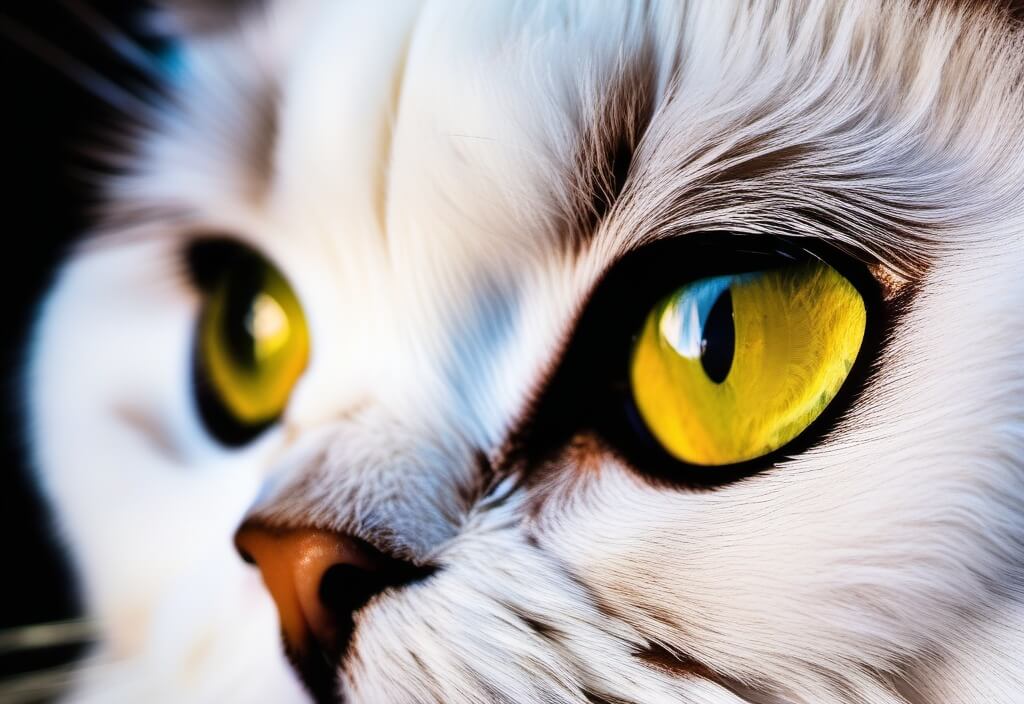
Table of Contents
Welcome, Persian cat owners! Ever find yourself wondering, "Why do Persian cats sleep so much?" Well, you're not alone. It's a question that's crossed the mind of every Persian cat owner at some point or another.
Here's the scoop: Persian cats, like their feline counterparts, are champion sleepers. They can clock in anywhere from 12 to 16 hours of sleep a day! That's a whole lot of snoozing, right?
But don't worry, it's perfectly normal. Their luxurious lifestyle is all part of being a cat, and it's especially true for our fluffy Persian friends.
Cat Sleep Cycles
So, let's look into cat sleep cycles. Understanding these cycles is the first step towards unraveling the mystery: "Why do Persian cats sleep so much?"
Comparison of Human and Cat Sleep Cycles
Unlike us humans who typically have one long sleep period, cats, including our Persian pals, have multiple sleep periods throughout the day and night. They experience both REM (Rapid Eye Movement) and non-REM sleep, but their cycles are much shorter than ours.
While we might spend about 25% of our sleep in REM, cats spend nearly 60% of their sleep in this phase. This means they're in a light sleep state for a significant portion of their snooze time, ready to spring into action at a moment's notice.
Cats experience multiple sleep periods with shorter cycles compared to humans, spending a significant portion of their sleep in the REM phase.
Unique Sleep Cycles of Persian Cats
Persian cats are known for their laid-back lifestyle. They tend to sleep more than other breeds, often spending their days in dreamland. This isn't laziness - it's just their unique sleep cycle at work! Persian cats are known to be less active than other breeds.
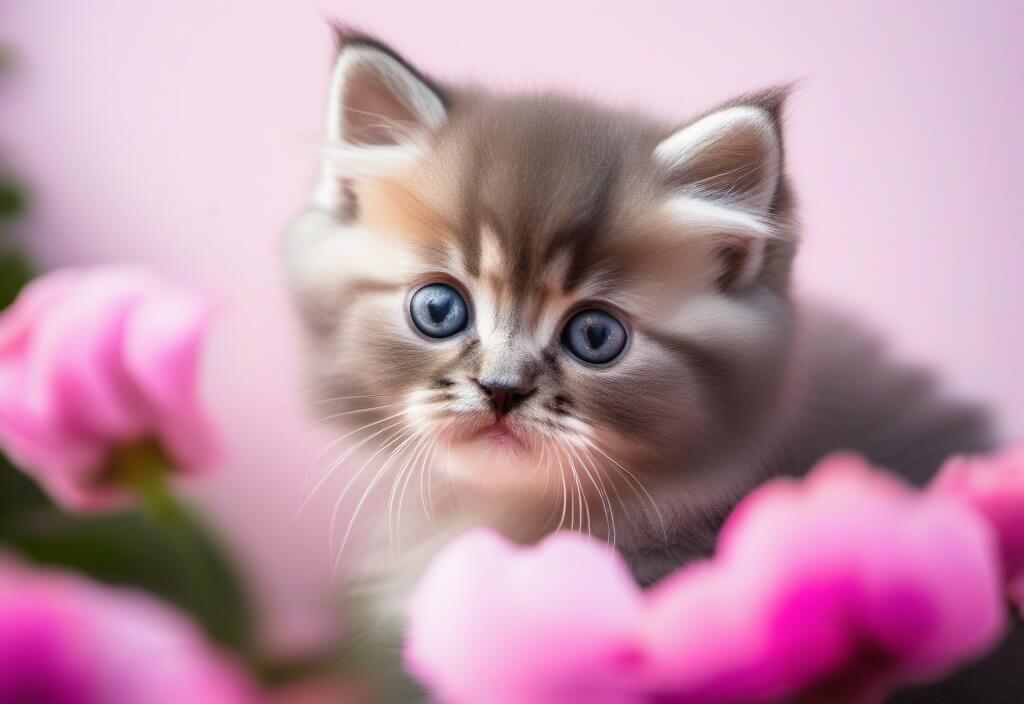
Their luxurious coats and brachycephalic (short-nosed) features make them less inclined to vigorous activity, which could explain their increased sleep time. So, if you see your Persian cat snoozing the day away, don't fret - they're just living their best life!
Persian cats have a unique sleep cycle that involves more sleep than other breeds, possibly due to their less active nature and physical features.
Factors Affecting Persian Cat Sleep
Now that we've explored the unique sleep cycles of Persian cats, let's go deeper into the various factors that can influence their sleep patterns. From age and diet to health conditions, several elements can impact how much your Persian cat sleeps.
Age and Sleep
Just like humans, the age of a Persian cat can greatly affect their sleep patterns. With their boundless energy, kittens tend to have short bursts of intense activity followed by long periods of sleep. As they grow into adulthood, their sleep patterns stabilize, but they still enjoy a good snooze.
Senior cats, on the other hand, tend to sleep even more, as their energy levels decrease with age. So, if your Persian kitten or senior cat is sleeping all day, don't worry, they're just growing or aging gracefully!
The age of a Persian cat can greatly influence their sleep patterns, with kittens and senior cats typically sleeping more than adults.
Diet and Sleep
A balanced diet can promote healthy sleep patterns. Cats are obligate carnivores, meaning they require a diet high in meat. Protein-rich diets are essential for their health and can contribute to regular sleep patterns.
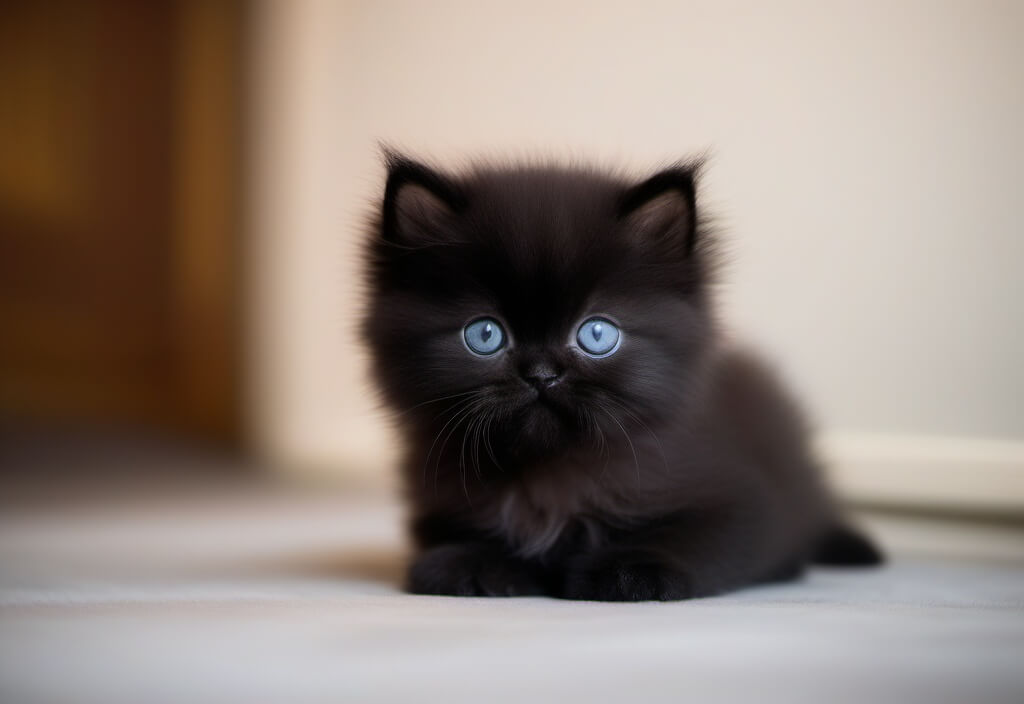
On the other hand, an improper diet can lead to sleep disruptions. For instance, foods high in carbohydrates can cause spikes and crashes in energy levels, affecting their sleep. That's why you should make sure your furry friend is getting the right nutrients!
A balanced, protein-rich diet can promote healthy sleep patterns in Persian cats, while an improper diet can lead to sleep disruptions.
Health Conditions and Sleep
Certain medical issues, such as hyperthyroidism or arthritis, can cause changes in sleep patterns. Hyperthyroidism can lead to increased activity and restlessness, while arthritis can make it difficult for them to find a comfortable sleeping position.
If you notice any drastic changes in your cat's sleep, such as sleeping too much or too little, it might be time to visit the vet. It's always better to be safe than sorry when it comes to the health of your Persian cat.
Health conditions, such as hyperthyroidism or arthritis, can cause changes in a Persian cat's sleep patterns.
Benefits of Sleep for Persian Cats
Now that we've explored the factors that can influence a Persian cat's sleep, let's get into the benefits of all that snoozing. After all, there's a reason they spend so much time in dreamland!
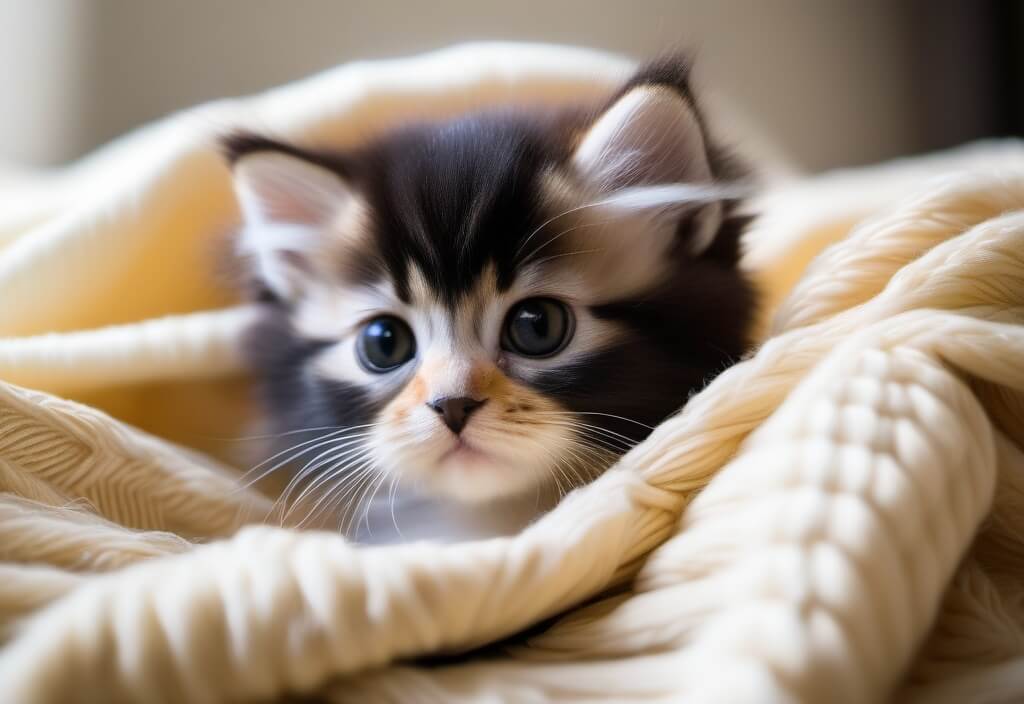
Rest and Recovery
First and foremost, sleep is a time for rest and recovery. During sleep, your Persian cat's body works hard to repair muscles, consolidate memory, and release important hormones. This is very important for their overall health and well-being.
In fact, the restorative power of sleep is so important that without enough of it, they may be less able to fight off infections or recover from injuries. So, when you see them curled up and snoozing, remember - they're not just lazing around, they're taking care of their health!
Sleep is a time for rest and recovery, playing a crucial role in a Persian cat's overall health and well-being.
Growth and Development
For kittens, sleep plays an even more critical role. Growth hormones are released during sleep, which means that sleep is essential for their growth and development. That's why kittens sleep so much - they're busy growing! During these crucial early months, their bodies are developing rapidly, and sleep provides the energy they need for this growth.
If your Persian kitten is sleeping a lot, let them. They're simply growing into the majestic cats they're destined to be. And even as they grow older, sleep continues to play a vital role in maintaining their health and vitality.
For kittens, sleep is essential for growth and development, with growth hormones being released during sleep.
When to Worry About Your Persian Cat's Sleep
While it's normal for Persian cats to spend a lot of time sleeping, there are times when their sleep patterns can indicate a problem. Let's look at some signs that might warrant a vet visit.
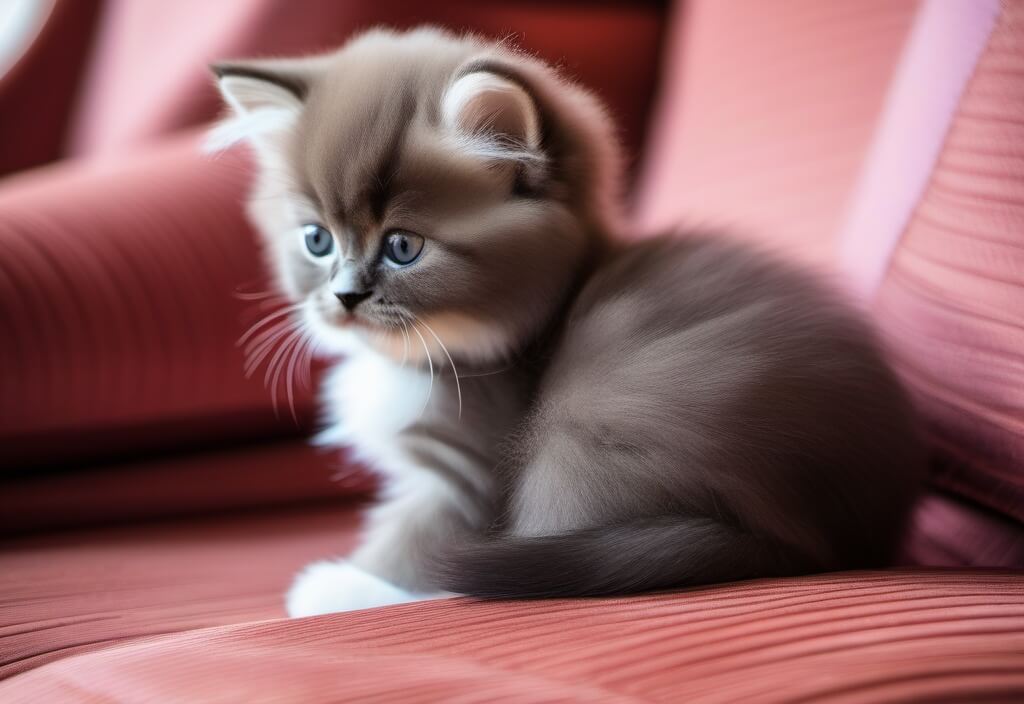
Excessive Sleeping
Although Persian cats are known for their love of sleep, excessive sleeping can sometimes be a cause for concern. If you notice that your Persian cat is sleeping more than usual, it could be a sign of an underlying health issue, such as an infection or a metabolic disorder.
However, keep in mind that 'excessive' is relative. What might seem like a lot of sleep to us could be perfectly normal for a Persian cat. It's changes in their usual patterns that can be a red flag.
Excessive sleeping in Persian cats can sometimes indicate an underlying health issue, but remember that 'excessive' is relative.
Insufficient Sleep
On the flip side, if your Persian cat is sleeping less than usual, it could also be a sign of a problem. Insufficient sleep can be caused by various factors, such as stress, discomfort, or illness.
Just like us, cats need a certain amount of sleep to function at their best. If they're not getting enough, it can affect their mood, energy levels, and overall health.
Insufficient sleep in Persian cats can be a sign of stress, discomfort, or illness, and can affect their mood, energy levels, and overall health.
Changes in Sleep Patterns
Any significant changes in your Persian cat's sleep patterns should be noted. This could include changes in the amount of sleep, the times when they sleep, or their behavior during sleep. For example, if your cat is suddenly sleeping during the day when they usually sleep at night, or if they're restless during sleep, it might be time for a vet check.
Changes in sleep patterns can be a sign of many different health issues, from minor concerns like fleas or allergies to more serious conditions like diabetes or kidney disease.
Significant changes in a Persian cat's sleep patterns can indicate a potential health issue, ranging from minor concerns to more serious conditions.
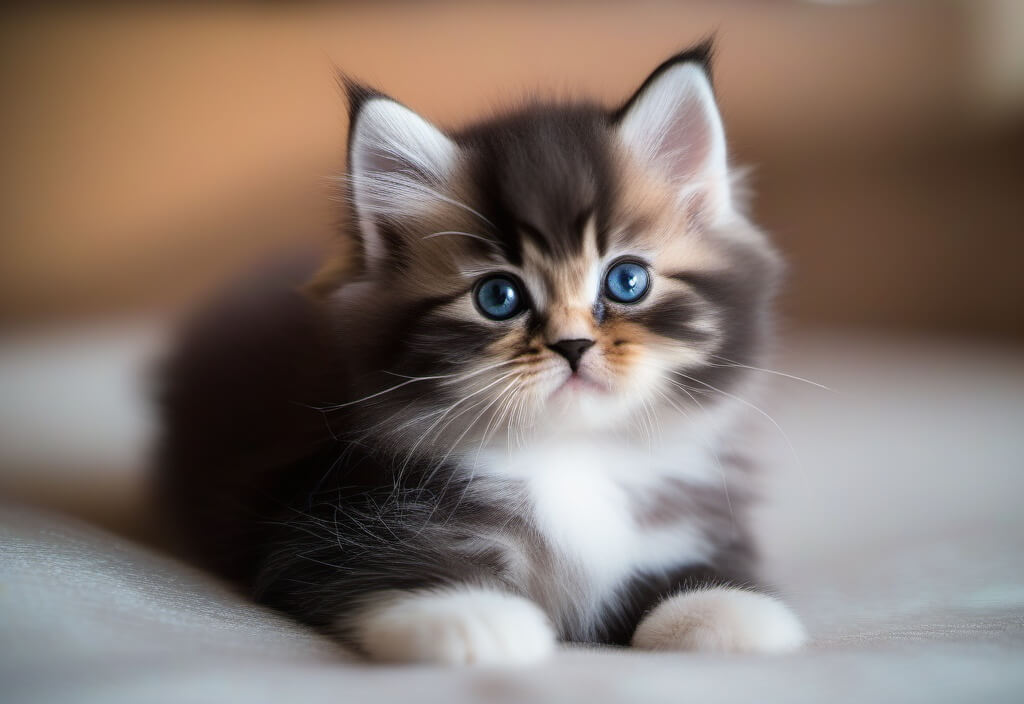
Conclusion
We've jumped into the dreamy world of our feline friends, exploring why our beloved Persian cats love their beauty sleep so much. From understanding their unique sleep cycles to recognizing the factors that can affect their sleep, we've covered it all.
Keep in mind that sleep isn't just about catching some Z's. For our Persian pals, it's a time for rest, recovery, and growth. It's an extremely important part of their health and well-being.
So, the next time you see your Persian cat curled up and snoozing, know that they're not just being lazy - they're taking care of themselves in the best way they know how!
But as always, keep an eye out for any significant changes in their sleep patterns. If something doesn't seem right, don't hesitate to consult with a vet. After all, a well-rested Persian cat is a happy Persian cat. And if there's anything else on your mind, feel free to drop a comment below!
